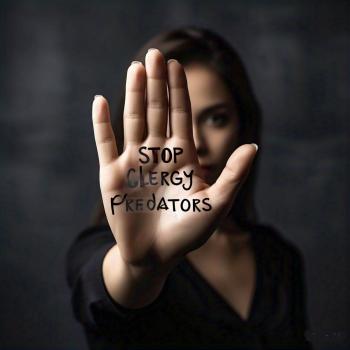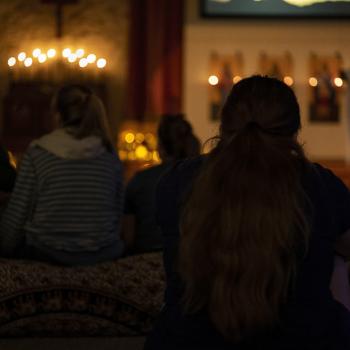The difficulty in all of this, thus, comes with the notion that polytheism and its confederate pluralism must affirm and approve of every other option. Realistically, this could not be the case without all viewpoints becoming entirely relative, and thus all potential truths being equalized and therefore nullified as valid or permissible. While that may be the expectation and the actuality amongst some forms of mindless pseudo-liberalism and what gets praised and celebrated as "open-mindedness," it is not a very viable way to approach any matter in life without caring about any possible outcome and leaving everything to whim and chance, with no values or senses of meaning asserting themselves whatsoever. If anything, the truth of the matter comes out when particular self-proclaimed "open-minded" individuals end up making any decision with which they might be faced, and especially any decision that results in upholding whatever viewpoint they evidently prefer rather than something entirely new and unexpected. And, there's nothing wrong with making choices (and thus saying "no" to some things while affirming others), with liking what one likes, and with preferring what stirs one's own guts, heart, mind, or anything else.
Since polytheism is thus necessarily contextual and individualized, there will be some "truths" held by some people that cannot possibly work nor qualify as "truths" at all for others based on their positions. But rather than this leading to a nihilistic and relativistic "anything goes" attitude, I believe (and that's a word I don't use very often!) it can lead to a position of increased respect and pluralism, rather than what the proponents of "open-mindedness" have far too frequently called "fundamentalism" in recent months.
If your gods require certain things of you that mine do not, or if one of our shared deities has asked something of you that the deity has not asked of me, then you should do as you are directed, and I should not feel the need to question or demean what you have been asked. If it is as simple as that -- and I think it is -- then almost all of the recent debacles can be avoided quite easily.
It isn't that there aren't truths; it's that your truths aren't mine and mine are not yours, and even where they contradict each other directly, they do so because of the individuality that polytheism necessitates and respects. (Horus and Set exist in the same pantheon, and while they contend with each other regularly, neither is ever ejected from the pantheon or destroyed, which I think is important; and whether one happens to be Horus or Set in any given contending in modern polytheism is actually quite irrelevant!) I can still mark my own truths and untruths without requiring anyone else to agree or assent to those markings. While there may be an element to this sort of reasoning that is seemingly relativistic, it is not relativism entirely; I think that pluralism better describes it, because there is plurality and non-univocality involved, without the phrase "your mileage may vary" entailing "everyone's mileage is as good as anyone else's," thus entirely invalidating one's own mileage as a sensible option in any given case. Or, to put it another way with the divine metaphor given above, Set isn't always automatically "bad" and Horus isn't always automatically "good," but someone has to be each one of them in order for the greater cosmic order of Ma'at to work itself out, and if no one steps up to be Set when Set is needed, then things will not go well at all.
When I was in high school, my favorite English teacher looked at a book I brought in once by a prominent Arthurian scholar, and said "Don't you wish you were him?" I said no, and she was taken aback by my apparent arrogance and disrespect, but I replied further, "If I were him, who would be me?" This is why true diversity and pluralism are necessary, I think, in both an ecological and cosmological sense as well as theologically within polytheism.
If everyone and everything has a role to play in a polytheistic system -- which I think is implied by polytheism's placing a premium on respect for diversity -- then the most important thing is for each entity to do what it is meant to do and is best suited to do. Losing time and wasting energy on generalizing, or on delineating why one method is better than any other (rather than elucidating one's own preferred methods and understanding that doing so is particular and contextual and applicable only in a limited scope) gets in the way of doing what is necessary for each individual entity, which only that entity can do.





